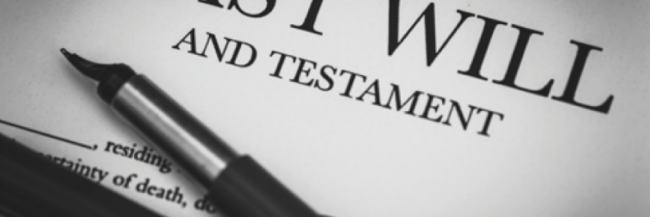Article originally posted on 24 October 2016
Why Make a Will?
A Will is a legal document that allows you to direct what should happen to your estate after your death. It ensures that your possessions are given to your loved ones in accordance with your wishes.
A Will gives you the opportunity to:
- Name trusted individuals who you would wish to administer your estate after your death;
- Choose who acts as guardians for your children, in the event that you die unexpectedly;
- Specify who should receive certain assets or share in your inheritance.
What happens if there is no will or it is invalid?
If you die without making a Will or your Will is invalid either partially or in whole your affairs and assets will be dealt with and distributed in accordance with the laws of intestacy.
The laws of intestacy set out who should inherit or share in your estate. This may not accord to your wishes, and in particular if you are married your spouse may be left with limited access to assets left in trust to your children as they may be entitled to a substantial portion of your estate.
Currently the laws of intestacy provide that assets are distributed as follows:
- where there is a spouse or civil partner the spouse will benefit from:
- all chattels absolutely;
- the first £250,000 of the residue;
- half the remainder of the residue; and
together with the remainder to be held on trust for the deceased’s issue
- where there is issue but no spouse the residuary estate (after expenses) is left in Trust for the Issue of the deceased
- If there is no issue the residue is distributed to the deceased nearest group of relatives following a line upwards to parents, brothers and sisters, half brothers and sisters, grandparents etc and if no relatives can be found your assets will go to the crown.
Is a Will always necessary?
A person does not have to make a will.
In cases where there are few assets and the Estate is small or where all members of the family are adults and intended to inherit by laws of intestacy a will is not necessary. It is always advisable to seek legal advice.
The importance of reviewing your will
You may have already written a Will.
It’s advisable to review your Will after every significant life change, to ensure that it still reflects your wishes. Examples of life changing events are marriage, divorce, birth of children or grandchildren, change in your financial circumstances, death of persons named in your Will.
Writing a Will with MannBenham
If you are considering making a Will or updating your Will, we can assist in discuss your wishes and preparing your Will in accordance with your individual needs.
Should you wish advice regarding Wills or just wish to understand your options, please feel free to speak with one of our personal law team on 01624 639350.







